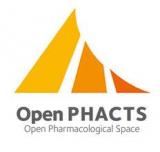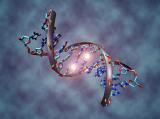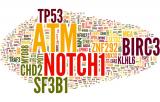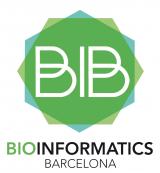
23/9/2015
Open PHACTS wins European Linked Open Data award
We are delighted to announce that project Open PHACTS has been awarded first place in the Linked Open Data Award of the inaugural European Linked Data Contest (ELDC). An international jury of ambassadors from over 15 European countries elected Open PHACTS as the winner.
The Open PHACTS project has built a platform for drug discovery that integrates data over diverse sets of public chemistry and biological data. It currently connects linked open data from 12 different data sources, including chemical compounds, protein targets, biological pathways and tissues, and diseases. The diversity and size and of the Open PHACTS data are growing rapidly, and it contains currently more than 3 billion triples. The Open PHACTS project is a unique collaboration between European academic groups, small businesses and large pharmaceutical companies, partially funded by the EU.
GRIB participates in the Open PHACTS project as coordinator of one of the workpackages.

08/09/2015
De novo genes: starting to solve the mystery of their origins
A new collaboration amongst scientists at different centres at the PRBB, with Mar Albà from the Evolutionary Genomics Group of GRIB (IMIM-UPF) as leading author, has come up with a new mechanism for explaining the formation of de novo genes. Although commonly new genes arise by gene duplication and diversification of the copy, some genes appear in genomic regions which did not previously contain any gene, as compared with other species. How do these genes originate from nothing?
On this publication the authors propose – based on transcriptomic comparisons between humans and three other mammals – that first new regulatory motifs/promoters appeared in those regions, which lead to an activation of transcription and the origin of new potentially functional genes. Alba’s group have actually identified hundreds of putative de novo genes in the human genome.
You can read more about this in the Evolutionary Genomics’ group blog in this and this post, where they also point out to an interesting overview on the history of de novo genes, by Emily Singer.
Pub reference (Dec 2015): Ruiz-Orera J, Hernandez-Rodriguez J, Chiva C, Sabidó E, Kondova I, Bontrop R, Marqués-Bonet T, Alba MM. Origins of De Novo Genes in Human and Chimpanzee. PLoS Genet, 2015; 11(12)

Mutations in the dark region of the genome cause leukaemia
A study published in Nature on 22 July have decoded the genome of more than five hundred patients with leukaemia and have identified recurrent mutations in non-coding regions of the genome, which provides new clues to the development of cancer. This study is the first to complete the analysis of five hundred genomes within the International Cancer Genome Consortium (ICGC) and it most important finding is the identification of mutations in areas of the genome that do not code for proteins whose functional significance is still very little known. These regions represent 98% of our genome, but they are so little known that they are not usually analysed in patients. This study has enabled defining sixty genes whose mutations cause tumour development.
The study has been conducted by researchers Carlos López-Otín, of the University of Oviedo, and Elías Campo, from the IDIBAPS and the University of Barcelona. They coordinated a team of over sixty researchers working at centres belonging to the Spanish Chronic Lymphatic Leukaemia Genome Consortium, including Núria López Bigas, ICREA researcher and Head of the Biomedical Genomics Group of GRIB (IMIM-UPF), Carlota Rubio and David Tamborero, researchers of her team.

Constitució de l'Associació Bioinformatics Barcelona - BIB
(Nota de Premsa)
L'associació BIB compta amb 25 entitats membres entre universitats, centres de recerca, instituts de recerca hospitalària, grans infraestructures científiques, empreses i altres institucions, a més de 23 entitats en procés d'incorporació.
La primera junta directiva està formada per la presidenta Dra. Ana Ripoll (UAB), el secretari Dr. Arcadi Navarro (UPF) i el tresorer Dr. Alfons Nonell (Mind the Byte).
Neix amb la voluntat d'involucrar a totes les entitats per generar iniciatives i dinàmiques col·laboratives en recerca avançada, transferència de coneixement i formació, que projectin Barcelona i Catalunya com un pol de referència internacional en l’àmbit de la bioinformàtica.
Donarà resposta als reptes plantejats pel creixement de macrodades (big data) en els àmbits de salut i agroalimentari, com per exemple la medicina personalitzada i l'agricultura de precisió.
La primera iniciativa sorgida del BIB ha estat el disseny d'estudis pioners en tot l'Estat: la formació professional de tècnics informàtics amb orientació bioinformàtica que es posarà en marxa en el curs 2015-16, i el primer grau interuniversitari en bioinformàtica en el Sistema Universitari Català previst pel curs 2016-17.

22/06/2015
The Master in Bioinformatics for Health Sciences of the UPF classified as one of the best in Spain
The Master in Bioinformatics for Health Sciences of the Pompeu Fabra University has been classified as one of the best in Spain acording the ranking published by "El Mundo"
The master in Bioinformatics aims to provide professionals and researchers with expertise and skills geared towards developing new computational strategies and IT systems that are useful in biomedical research. The master has a faculty staff with both a long experience in teaching and research careers widely recognized. To implement this master, expert researchers on each field have been selected at Universitat Pompeu Fabra and Universitat de Barcelona on each of the subjects taught: Molecular Biology, Genetics, Mathematics, Pharmacology, Biochemistry, Drug Design and others. An important part of the faculty staff, including the coordination of the master are members of the Research Programme on Biomedical Informatics (GRIB).

22/06/2015
GRIB organise the "Cancer genomics and personalised medicine workshop: focus on pancreas cancer"
The workshop is addressed to researchers and students interested in cancer genomics and the main objective is to provide a view of top research projects in cancer genomics research, with a special focus on Pancreas Cancer. Speakers include Prof Ben Raphael, from Brown University (USA), who will talk about The Cancer Genome Atlas Project on Pancreatic Adenocarcinoma. Prof. David Chang, from the Institute of Cancer Sciences at the University of Glasgow, who will discuss molecular stratification approaches on pancreatic cancer. Dr. Stepha Ossowski (from the Centre for Genomic Regulation), who will address the challenge of identifying driver mutations in heterogenous or low purity tumour samples. Finally Prof. Kristen Van Steen (University of Liege, Belgium), will talk about integrative approaches in cancer.
The Biomedical Genomics group of GRIB, led by Núria López-Bigas, as members of the EUPancreas COST Action organize this event hosted by the Barcelona Biomedical Research Park the 1st of July. The EUPancreas COST Action is an integrated european platform for pancreas cancer research: from basic science to clinical and public health interventions.

16/06/2015
Two postdoctoral researchers join the GRIB through the program UPfellows
The UPfellows program provides professional development opportunities to young postdoctoral candidates from foreign centers of any nationality who wish to pursue their scientific career in Catalonia, under the guidance of a senior scientific mentor.
GRIB researchers selected were Alexia Giannoula, that will develop her project in the IBI group, led by Laura I. Furlong and Márton Münz that will join the Biomedical Genomics group led by Núria López-Bigas.
The UP fellows program, promoted by the University Pompeu Fabra, has the support of Marie Curie COFUND Programme of the 7th Framework Programme of the European Commission and offers a total of 24 grants to international researchers.

16/06/2015
Presentacion de los Resultados del Programa de Cooperación Farma-Biotech 2011-2014 en el Auditorio del PRBB
El próximo 1 de Julio, en el Auditorio del PRBB, tendrá lugar la presentacion de los resultados del programa de cooperación Farma-Biotech 2011-2014.
Este programa ha sido promovido por la Plataforma Tecnológica Española Medicamentos Innovadores (PTEMI) y Farmaindustria, con el objetivo de impulsar acuerdos de cooperación entre compañías farmacéuticas, pequeñas empresas biotecnológicas españolas y centros de investigación. A lo largo de estos años se han celebrado doce encuentros, en los que han participado 93 agentes y se han presentado 86 proyectos biotecnológicos dando paso a firma de acuerdos de transferencia y otros resultados.
La asistencia a la jornada es gratuita con inscripción previa en http://www.medicamentos-innovadores.org

10/06/2015
Cuatro proyectos del GRIB recibirán ayudas del Plan Nacional del MINECO
El Ministerio de Economía y Competitividad (MINECO) ha concedido las ayudas del Plan Nacional de I + D + i, el instrumento principal de la política científica española que promueve los trabajos que se encuentran en la base del progreso científico. El GRIB ha obtenido financiación para cuatro proyectos de investigación.
Eduardo Eyras, investigador ICREA y jefe del grupo de Genómica Computacional, llevará a cabo el proyecto "Caracterización y detección de alteraciones en el procesamiento del RNA con relevancia clínica para la medicina personalizada del cáncer".
Gianni de Fabritiis, investigador ICREA y jefe del grupo de Biofísica Computacional, llevará a cabo el proyecto "Conformational Kinetics, binding and modulation of disordered protein domains".
Jordi Mestres, jefe del grupo de Farmacología de Sistemas llevará a cabo el proyecto "Aproximaciones de sistemas a la predicción avanzada de la seguridad de pequeñas moléculas para la salud humana y ambiental".
Baldo Oliva, jefe del grupo de Bioinformática Estructural, llevará a cabo el proyecto "Desarrollo de herramientas bioinformáticas para el estudio de los mecanismos de reconexión de la red de interacciones de proteínas: Aplicación en la medicina de sistemas (PINR-sysmed)".

Informative session of the Master in Bioinformatics for Health Sciences on June the 12th
Come to the information session of the master's degree in Bioinformatics for Health Sciences on June the 12th at 17:00 at Marie Curie room in the ground floor of PRBB (map).
The aim of this session is to provide information about the main characteristics of the Master, which is available for the 2015-2016 academic year. If you are interested please fill the form here.



